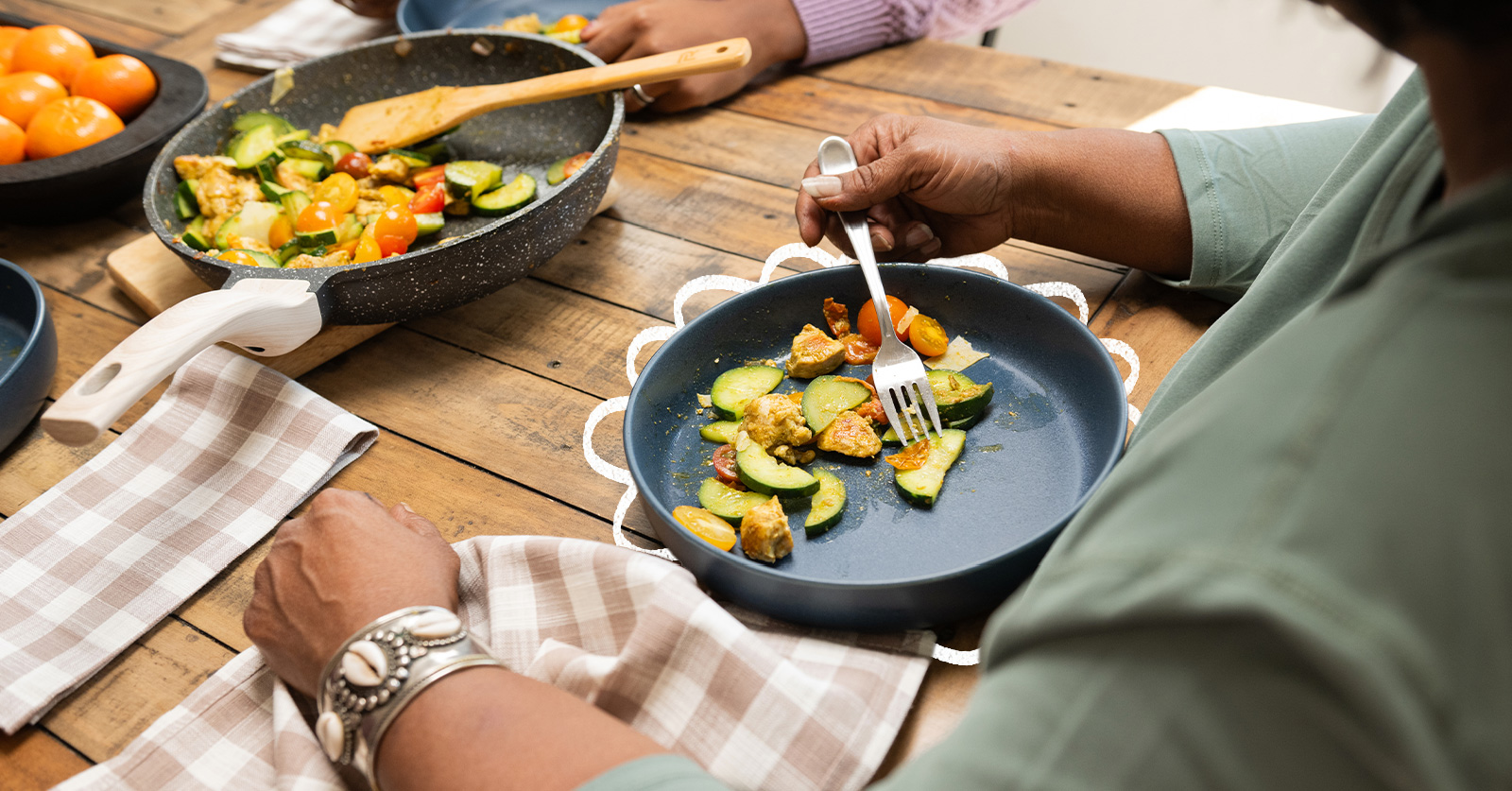WANT EVEN MORE HEALTHY IDEAS FROM SHAPE YOUR FUTURE?
Healthy living is important for everyone, but that doesn’t mean we all face the same challenges. Our goal at Shape Your Future is to provide accessible health solutions for every issue and every person across the state. According to the Centers for Disease Control (CDC), there are a few preventable diseases the affect the Black community at a much higher rate than others.
3 Common Health Problems Among Black Americans
Type 2 Diabetes
This disease occurs when your blood sugar becomes too high and unmanageable. Once your blood sugar rises above a certain level, your body can no longer use it as fuel, and the high levels remain in your body. In the United States, Black adults are nearly twice as likely to develop Type 2 diabetes than white adults, and the risk only increases with age.
Early symptoms of Type 2 diabetes include:
- Increased hunger and thirst
- Fatigue
- Slow-healing wounds and injuries
- Blurred vision
- Numb hands and feet
Symptoms usually develop slowly. While there is no cure for diabetes, you can work on eating healthier and moving more to ease complications.
Heart Disease
This is one of the most common health problems among Black Americans, and in general, the number one cause of death in the United States. While the symptoms of heart disease depend on the type, typical signs include:
- Chest pain
- Chest tightness
- Shortness of breath
- Coldness or numbness in the arms and legs
- Irregular heartbeat
- Dizziness
- Fainting
Heart disease isn’t always preventable, but making a few healthy changes in your life can dramatically lower a few of the risk factors.
High Blood Pressure
This silent disease also tops the list of common health problems among Black Americans. It can be genetic, so checking your family history is important. However, you can manage high blood pressure with healthy eating and regular exercise. Think you may be at risk? Symptoms include:
- Headaches
- Shortness of breath during daily tasks
- Chest tightness
- Nosebleeds
If you think you may be at risk or are experiencing symptoms, talk with your doctor. Normal blood pressure should be under 120/80. Diseases can affect people differently, so the only way to know for sure is with a proper diagnosis.
“Diabetes, high blood pressure, heart disease … all those things can be prevented or totally turned around by what you eat, and exercise.” – DeLanie, Oklahoma City

6 Ways To Take Control of Your Health
While there are many factors that contribute to the rise of health issues in the Black community, these six steps can help lower your risk or even reverse symptoms before they become life-threatening or long-lasting.
- Choose nutritious foods. Giving our bodies the proper fuel they need is one of the best things you can do for yourself. Understanding how food powers our bodies can help prevent or slow the effects of common health issues in the Black community. So, where do you start?
- Choose foods high in vitamins, minerals and fiber. Fruits and veggies are a great place to start!
- Balance your plate. Speaking of fruits and veggies, a balanced plate might include more than you think. A good rule of thumb is to fill half your plate with fruits and veggies and fill the other half with whole grains and protein. Unsure of where your favorite foods fall? Review the five food groups!
- Learn how to read nutrition labels. Shopping for healthy foods? Flip over the box and get the facts! Download this reading guide to help you understand each line.
- Add healthy recipes into your rotation. Healthy eating doesn’t have to be boring. Find tasty new recipes, create shopping lists and build your weekly meal plan here.
- Move more. Did you know adults need 30 minutes of physical activity each day and kids need 60? Physical activity gets your heart beating, boosts your metabolism and improves your immune system. Here are a few accessible ways to build physical activity into your day:
- Break it up! It can be hard to find a spare half hour for activity every day. Instead of getting discouraged, find small pockets of time throughout your day and add them up!
- Skip the gym and get active at home. Gyms aren’t always nearby and memberships can be expensive. However, your living room, hallway or garage are great locations for physical activity. Use household items to boost your workout routines or use our videos for healthy inspiration.
- Swap out sugary drinks. Sports drinks, soda and juice boxes are packed with sugar that can lead to common health problems among Black Americans. Drinking water keeps you hydrated, helps with digestion, improves kidney function and contains ZERO sugar. If you struggle to swap your beverage out for H2O, here’s some inspiration:
- Our sugary drink calculator can offer some insight into how much sugar you’re drinking.
- Try sparkling and fruit-infused water. Think about what you like about soda. Do you like the fizz? Give sparkling water a try. Flavor? Infuse your water with fruits and herbs. Here are a few recipes.
- Practice mindfulness. Anyone can do it! Plus, it can reduce stress, boost your immune system, lower your blood pressure and risk of heart disease and help you maintain healthy habits. Curious how?
- Start in the morning. Begin every day with a few deep breaths while setting your daily goals.
- Eat mindfully. Check in with your hunger level before you eat and focus only on your food without distraction.
- Relax with your own thoughts or try a guided meditation from our friends at the Oklahoma Tobacco Helpline.
- Make sleep a priority. It is our bodies’ way of recharging and improves our physical health while helping our brains function throughout the day. However, getting a good night’s sleep is easier said than done. Having trouble making your sweet dreams a reality? Here are a few ideas:
- Limit screen time before bed to help your brain go to sleep.
- Set your sleep schedule by waking up at the same time every day, even on weekends.
- Unwind before bedtime with a relaxing nightly routine. Read, shower, clean or meditate every night before you turn off the lights.
- Avoid caffeine and large meals late in the day. Late-night snacking can disrupt your body’s digestion as you sleep, and afternoon caffeine will leave you staring at the ceiling. Adjusting your meal schedule can help you relax a little easier.
- Live tobacco free. A tobacco-free life not only improves your health — lowering your risk of preventable diseases — but the health of those around you as well. If you use tobacco, it may be time to put your health first and consider quitting. The Oklahoma Tobacco Helpline offers FREE resources to help you get the support you need on this difficult journey.
Your health is in your hands. By making healthy choices and approaching healthy living with an open mind, you can write a story that’s free of preventable health problems. Looking for more healthy inspiration? Check out DeLanie’s story.





